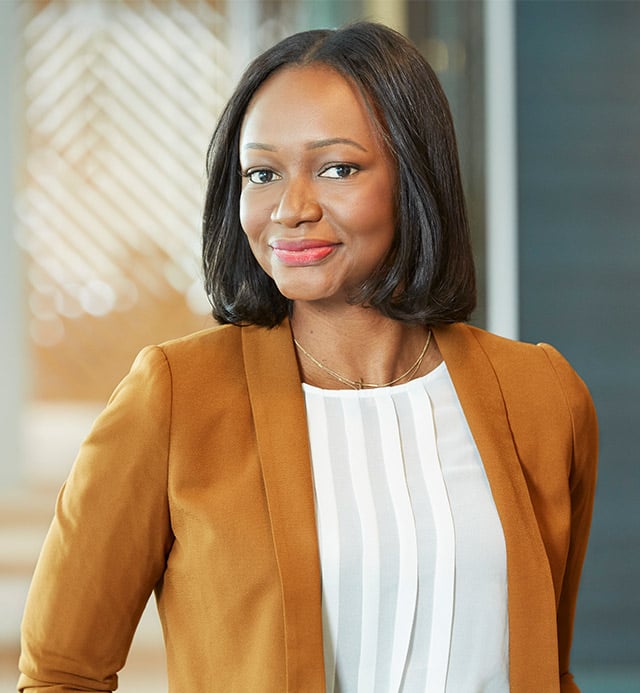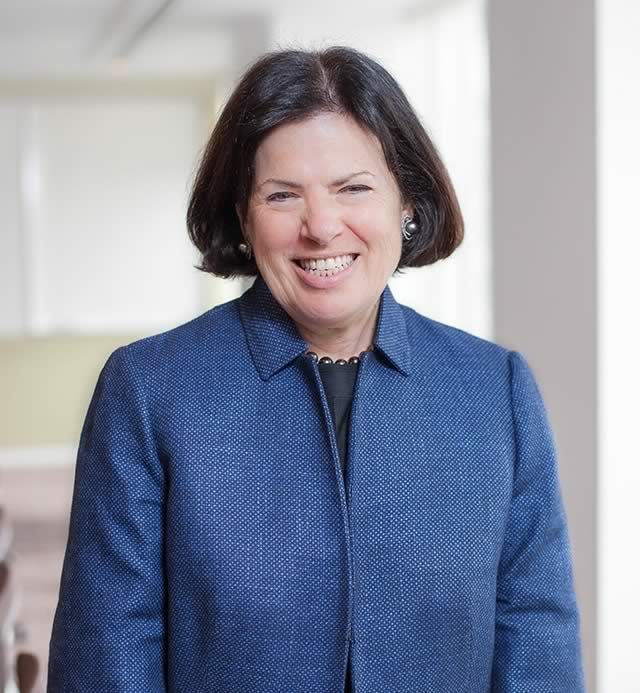-
Setting the Antitrust Agenda: A Q&A with Anne Catherine Faye
The first economist appointed to serve as counsel to the chair of the American Bar Association’s (ABA’s) Antitrust Law Section discusses her experience and what it will mean for her consulting work.
Since the fall of 2022, Analysis Group Vice President Anne Catherine Faye has served as counsel to the chair of the ABA Antitrust Law Section, Fiona Schaeffer, a partner at Milbank who has more than 25 years’ experience in antitrust issues on both sides of the Atlantic. Ms. Faye is the first economist to serve in the role, which has traditionally been held by a lawyer. In this position, she has assisted Ms. Schaeffer in setting the Section’s strategic direction and expanding its reach of activities to new geographies and audiences.
Ms. Faye is scheduled to step down from her position in September 2024, at the end of her two-year appointment term. She spoke with Analysis Group Chairman Martha Samuelson about helping to guide the Section’s work on antitrust and consumer protection issues, advancing Ms. Schaeffer’s and the Section leadership’s priorities, and what she’ll bring back to her consulting work.
The Antitrust Law Section has approximately 10,000 members across the US and internationally, and a leadership of almost 40 committees and task forces. How would you describe your role in that environment?
The counsel to the chair role is akin to that of a chief of staff. At a high level, I helped Fiona set and implement her strategic priorities for the Section, appoint leaders to nearly 700 positions, and develop substantive programming and content for leadership meetings and several in-person and virtual conferences in and outside the US. I also collaborated with her on management of the Section, which is large and includes a number of different groups within it. Ensuring that the chair’s policies and messages are being conveyed and understood is a significant undertaking, and we worked together extensively on that.
As the first economist to serve as counsel, do you think your particular background had any effect on the direction Ms. Schaeffer set for the Section?
I think it may be the other way around. Fiona selected an economist, at least in part, because of what she anticipated her priorities to be. As you know, antitrust law is fundamentally rooted in economic theory and principles, and those underpinnings provided a link across areas of the law that was helpful in broadening the Section’s focus. For example: Labor law, antitrust law, and environmental law don’t have much to do with one another, but the economics of competition apply equally in all three areas. So, Fiona’s focus for the Section, in which she wanted to explore creative ways to approach important issues, benefited from having the input of an economist – that is, someone from outside the legal profession with a different viewpoint – to help advance those goals.
In addition, antitrust law and economics have been areas of special focus in policy circles during the Biden administration. I think that having an economist in a prominent position in the Section may have been an asset as those debates have unfolded.
“Being in a leadership role...has allowed me to collaborate with lawyers setting global antitrust agendas, regulators setting policy, and teams of top legal minds evaluating the different ways in which antitrust and competition law is affecting consumers, the wider economy, and international trade. That broad exposure has given me a fresh perspective in my consulting practice...”– Anne Catherine Faye
How has this experience influenced how you think about your practice?
The Section has always provided practitioners with important exposure across the breadth of antitrust. Like many of my Analysis Group colleagues, I’ve been fortunate to learn from active participation in the Section for many years.
Being in a leadership role as counsel to the chair has allowed me to collaborate with lawyers setting global antitrust agendas, regulators setting policy, and teams of top legal minds evaluating the different ways in which antitrust and competition law is affecting consumers, the wider economy, and international trade. That broad exposure has given me a fresh perspective in my consulting practice, including a deeper understanding of my clients’ most pressing business issues. It’s also been a catalyst for me to mentor my junior colleagues as they become more involved with the Section in a variety of roles. I have watched them both enrich the Section and benefit from their exposure to its people and issues through their roles.
What new initiatives and innovations marked Ms. Schaeffer’s mandate that you thought were particularly meaningful?
To begin with, we focused on specific themes during this two-year period. The first was the intersection between sustainability initiatives and antitrust law. For example: questions about whether firms can collaborate to advance sustainability initiatives aimed at fighting climate change without violating antitrust laws, or the role of the consumer welfare standard in this context. We held a number of conferences and debates on this topic, including at our 2024 Spring Meeting – the Section’s preeminent in-person conference.
Fiona also emphasized a second major theme around AI and its interplay with antitrust and consumer protection. What effect is AI – for instance, algorithmic pricing and advertising – having on traditional antitrust topics such as collusion, price-fixing, and the exploitation of market power? Is the current US legal framework up to the task of balancing the harms and risks to competition from AI? We promoted the discussion of these topics in a number of events and conferences, including the Fall Forum conference, which was entirely dedicated to topics and issues related to AI.
I also helped Fiona bring the Section’s activities to new audiences. I co-chaired hybrid and in-person conferences on sustainability and antitrust law at Howard University in Washington, DC, and the University of Oxford in Oxford, England. And toward the end of my term as counsel, the Section will have its first event in Africa – a conference called “Antitrust Across Africa” in Cape Town, South Africa. Fiona thought – and I agree – that the expansion of the Section’s footprint internationally is a crucial part of recognizing the increasing globalization of the economy, and I’m proud to have played a role in making this happen. As with other events during our leadership years, this conference will also discuss the sustainability theme, which is of great relevance to the entire continent.
Finally, we wanted to find new ways of engaging the membership on traditional topics. For instance, we held a hybrid conference on the draft merger guidelines that was attended by more than 300 people. We helped develop, in collaboration with Harvard Law School faculty, the Section’s first ever in-house leadership academy designed for senior in-house competition and consumer protection counsel to further their C-suite counseling skills.
All these activities, I think, contributed to this year’s Spring Meeting attracting nearly 4,100 antitrust practitioners from across the globe, an all-time high. That tells us that we are reaching new audiences, both domestically and internationally.
As you prepare to step down from your role, how do you think your experience has made you a better consultant? What parts of it will you bring back to your consulting career?
On a professional level, through my role as counsel to the chair, I heard concerns from so many practitioners I might never have met otherwise. That has enriched my perspective as a consultant. Absorbing so many ideas during conversations with a large number of brilliant professionals in our field has sharpened my perspective on how to best apply economic tools to help triers of fact make informed decisions. That will ultimately help me better serve my clients.
Finally, on a personal level, it was a privilege to build a relationship with Fiona and other leaders. She has taught me to be more creative and bolder – when an idea comes up, to ask “Why not?” rather than “Why?” I know that my collaborations with the Section’s leaders will have long-lasting effects on my career, and I am thankful for that. ■
From Forum 2024.


